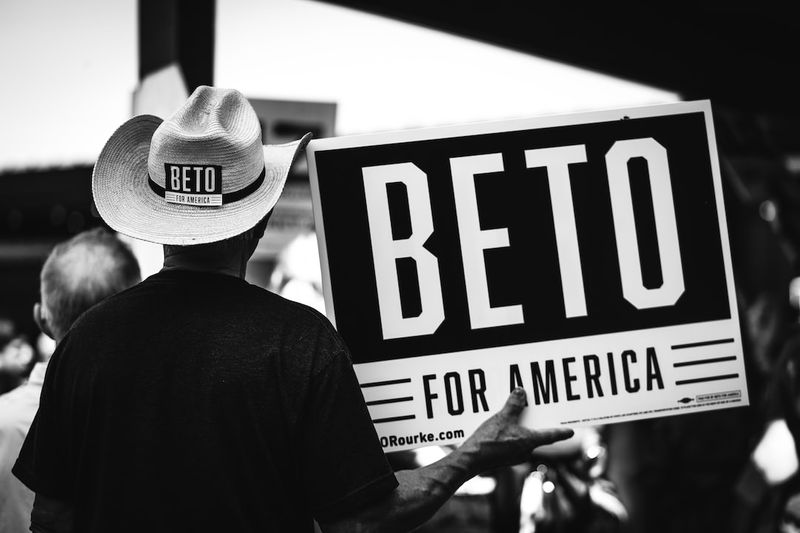The Debate Over Border Walls: Biden Administration’s Response to Immigration Crisis
Introduction
In the midst of a renewed surge of migrants at the US-Mexico border, President Joe Biden is faced with the challenging task of addressing the immigration crisis while grappling with the divisive issue of border walls. Despite his previous campaign promises to halt the construction of border walls, the Biden administration has announced plans to waive 26 laws and use already appropriated funds to build additional barriers in the Rio Grande Valley. This move has sparked debate and raised questions about the efficacy of border walls in managing immigration and addressing the root causes of migration.
A Change in Course
President Biden’s decision to build additional border barriers, despite his previous opposition to such measures, has ignited criticism and accusations of political maneuvering. The administration’s argument that it was compelled to use the already appropriated funds before they expired is met with skepticism by some who question the effectiveness of border walls in addressing the complex challenges of migration.
The Efficacy of Border Walls
President Biden’s clear stance against border walls reflects a broader debate surrounding their effectiveness. Critics argue that border walls do little to deter determined migrants and can even exacerbate the problems they purport to solve. They point to the fact that migrants often resort to more dangerous routes and methods to circumvent these barriers, putting them at greater risk. Moreover, opponents argue that border walls ignore the underlying factors driving migration, such as economic instability, violence, and environmental crises. They contend that addressing these root causes, rather than investing in physical barriers, would yield more sustainable and comprehensive solutions.
Legal and Environmental Concerns
One of the key reasons for the waiver of 26 laws by the Biden administration is to expedite the construction of new border barriers. However, this decision has raised concerns about the potential disregard for environmental and cultural preservation regulations. The laws being bypassed include the National Environmental Policy Act, the Endangered Species Act, the Clean Water Act, and the Clean Air Act. Critics argue that such exemptions undermine crucial protections and could have detrimental long-term consequences for the environment and indigenous communities.
The Border Crisis and Political Pressure
President Biden’s decision to build additional border barriers comes in the wake of a surge in migrant encounters at the US-Mexico border. The strain on federal and local resources, as well as the heavy political pressure on the administration, have contributed to this course of action. The record number of border apprehensions, especially unaccompanied minors, has caught officials off guard and intensified the urgency for a comprehensive response.
A Delicate Balancing Act
The Biden administration faces a delicate balancing act in addressing the border crisis. Striving to uphold humanitarian values and the principles of asylum while ensuring strong border security is a formidable challenge. The administration’s efforts to work with Mexico and secure additional commitments to control migration reflect an understanding of the need for a multifaceted approach. However, the decision to build additional border barriers raises questions about the prioritization of resources and the long-term impact on immigration policy.
Political Posturing and Public Opinion
The issue of immigration has long been a contentious one in American politics. Both Republicans and Democrats have faced backlash for their handling of immigration policies, and President Biden is no exception. Increasing demands from stakeholders, including leading Democrats and mayors, highlight the mounting pressure on the administration to take decisive action and provide adequate resources to address the arrivals. Public opinion on immigration is divided, and political posturing on the issue can have significant ramifications for the future of immigration policy in the United States.
Conclusion: Navigating Complexity and Seeking Comprehensive Solutions
The Biden administration’s decision to build additional border barriers has reignited the debate surrounding the efficacy of such measures in addressing the immigration crisis. Philosophically, the discussion centers on whether border walls are a mere Band-Aid solution or a necessary component of comprehensive immigration reform. While there is no easy solution to the complex challenges at the US-Mexico border, addressing the root causes of migration, engaging with international partners, and investing in humanitarian solutions are crucial steps. As the Biden administration navigates this politically delicate issue, it must carefully consider the long-term consequences of its actions and strive for comprehensive and sustainable solutions that uphold American values.

<< photo by Brian Wertheim >>
The image is for illustrative purposes only and does not depict the actual situation.
You might want to read !
- The Second Wave: Biden Administration Revamps Free At-Home Covid Testing
- “Enhancing Accessibility: Biden Administration Reinstates Free At-Home Covid Tests”
- The Rise of Women in the U.S. Navy: Biden’s Historic Nomination of Adm. Lisa Franchetti
- Retribution or Justice: Examining the Takeaways from the Death of a Texas Serial Killer
- The Emotional Toll of the American Bully XL Ban
- “Exploring the Ineffectiveness of Popular OTC Medicines for Colds and Allergies”




